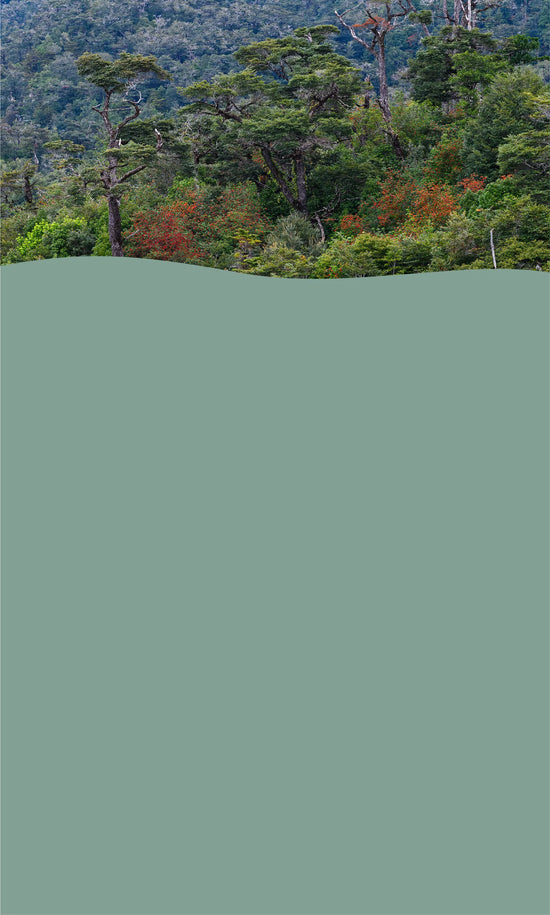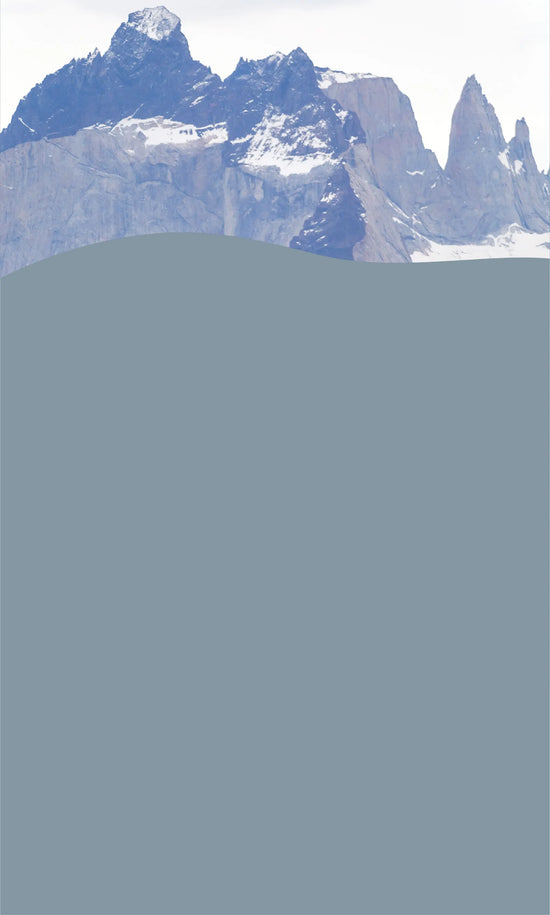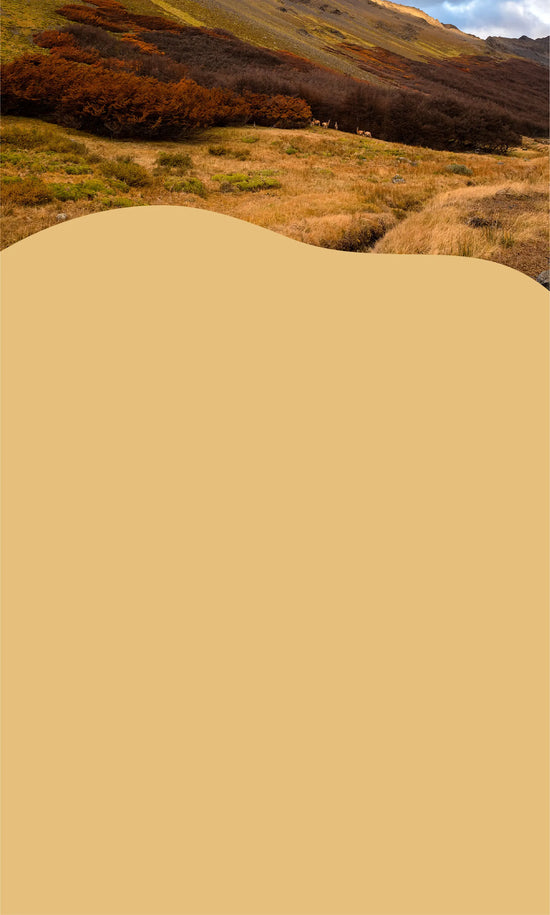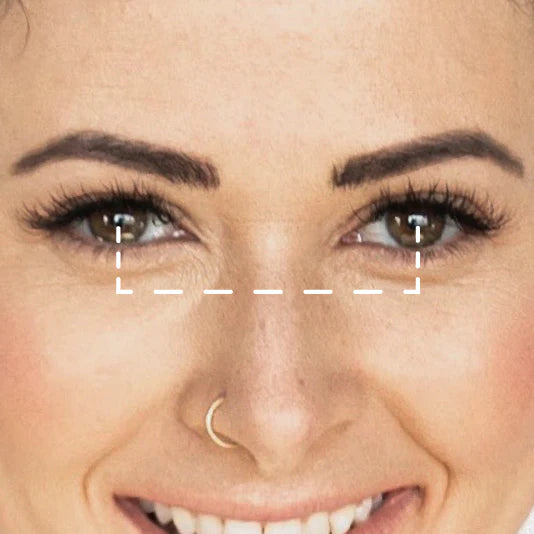In the surroundings of the Puelo River, in the commune of Cochamó, Pedro Rubio usually goes in search of plastics that pollute the coast of the Reloncaví Estuary. He collects bottles, fishing nets and ropes that arrive with the tide, and gives them an interesting use. Pedro is one of the rural entrepreneurs we met in Cochamó and now is part of our team, in charge of collecting and delivering part of the waste we turn into high-quality sunglasses. The glasses are made with a new technology that allows any Nylon 6 plastics (including fishing nets and ropes) to be transformed into a pellet which later becomes Karün eyewear.
We are used to companies that use a linear and extractive production process, where the product at the end of its life cycle becomes waste. At Karün we are working towards creating a circular production process, working to protect and conserve natural ecosystems, and at the same time reactivating local economies through the work with local entrepreneurs.
The story of Pedro Rubio
Pedro is a rural entrepreneur who has dedicated the last 14 years of his life to collect the waste that pollutes his habitat. He started as an employee of the Municipality of Cochamó, collecting the garbage from the streets. Now one of his sources of income comes from collecting the plastics that reach the edge of the Estuary of Reloncaví, that we use as raw material to create sunglasses from recycled plastic waste.
“I’m a person that loves nature, that’s all”, Pedro says when we talk about his work in 2004, where he collected trash from the streets. “I wasn’t embarrassed by what I did, because if you want to work, you can’t feel ashamed. I was a pioneer in cleaning streets because no one else did it. My wife was asked why I was picking up and cleaning the streets, but finally one cleans what one loves, your commune, your planet”. Pedro assured that it was that job that prompted him to learn more about recycling and the environment.
Some years later, in 2007, an opportunity arises for him to attend the First Regional Congress of Environment organized by CONAMA (A non-profit NGO that works under the Ministry of Environment to promote sustainable development) in Llanquihue, where he participated in different workshops and learned about recycling, conservation, water pollution and composting. He took what he learned and implemented it in his own home -where he created a worm compost with Californian worms to recycle his organic waste, and even shared it with his community to promote sustainable initiatives, like that one and a recycling project that was implemented a few years back in Puelo’s rural school where the establishment went on to revive a Green Flag that credits its commitment to the environment.

Today Pedro’s efforts are focused primarily on oceanic pollution through his work with us.
This morning, while we talk to him, he gets ready to start his day: He usually heads towards the Reloncaví Estuary in his small truck and walks along the coast collecting plastics that reach the shore: bottles, ropes, fishing nets, and other things. He explains, "While you are cleaning, the shore is getting contaminated all over again, this is because fisheries and farmers don’t care enough about tightening their ropes, nets, and other things. Even the people that are in boats contaminate. They are unaware of the problem they are generating". Pedro, who 36 years ago came to live in Puelo, remembers that garbage was not a big as a problem as it is today. He explains, "you could walk barefoot on the shore of the beach and the only thing you would find were wood sticks and other things that nature would leave with high tides.” He remarks, “caring for the planet is something different and good for the people who live here because if more people start caring, we could have the planet the way it was before”.
Pedro stores parts of the collected waste in a container on the beach, and other parts he keeps in his own house. A big amount of the waste he collects is for Karun, which we use as raw material to create sunglasses made from recycled plastics.
Sunglasses made of recycled plastics
We are a Chilean B corporation that is working to inspire the world into reflecting on the question: what would the world look like if we understood that we are all nature?
We create high-quality sunglasses using natural, noble, and/or recycled materials from Patagonia which serve as a symbol of a different way of looking at the world. This summer we just launched a new collection called Pacific with 2 new features: we used a new technology called ECONYL and we brought colors to the collection, inspired in nature.
The production process that we use in this collection is called ECONYL® and it enables us to recycle any type of Nylon 6 plastic collected from the sea. The process begins in Chile with the cleaning and selection of materials that later are sent to Slovenia, where they are transformed into pellets through a chemical recycling process. "A regenerative process that allows us to depolymerize the plastic chain and then polymerize-it again, resulting in a material with the same properties of the virgin plastic. This particular technology could make the recycling of our products infinite", explains Bárbara Toledo, who is in charge of R&D in Karün.
Thomas Kimber, the founder of Karün affirms: "This technology allows our product to be recycled, recreated and remodeled again and again, without ever losing its high quality and technical properties. Also, it gives the possibility of recycling a wider variety of plastic waste from the waters of Patagonia”.

However, this initiative not only seeks to reuse waste, but it also aims to involve local entrepreneur communities in the area of Puelo and Cochamó, as in the case of Pedro Rubio. “We generate a product with a lot of value through waste, helping the environment and empowering rural communities," says Giannina Guerra, Karün’s marketing manager in Chile.
Pedro Rubio tells us that the income that he earns through his work with us, not only contributes to the livelihood of his family but he also expects to use it to invest in his wife, Rosa González. Rosa is just like Pedro, a rural entrepreneur and she makes homemade and healthy empanadas and sells them in her community.
“My wife has excellent cooking skills, she cooks good and healthy meals. She makes healthy empanadas with spinach dough stuffed with mushrooms, cheese, peppers, and even makes sweet empanadas with chocolate and raspberry. It’s new for people. With what I earn with recycling, I will support her. I'm making a restaurant for her”, says Pedro.



